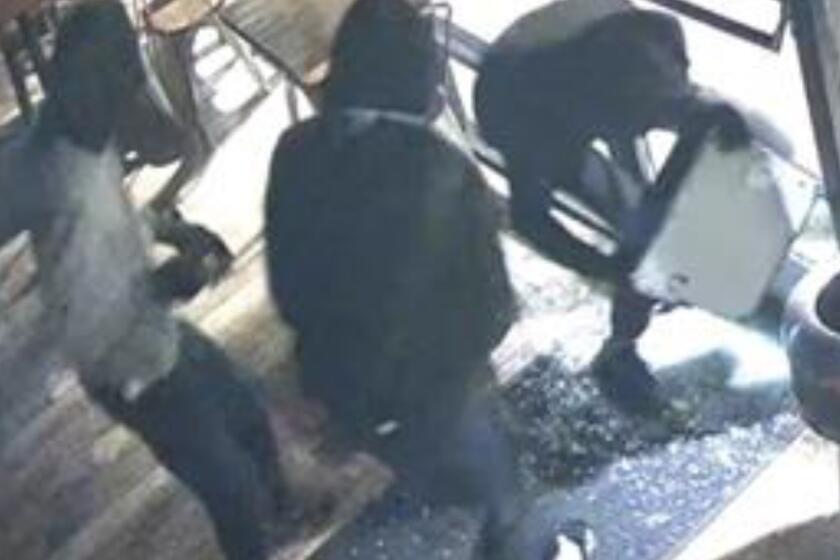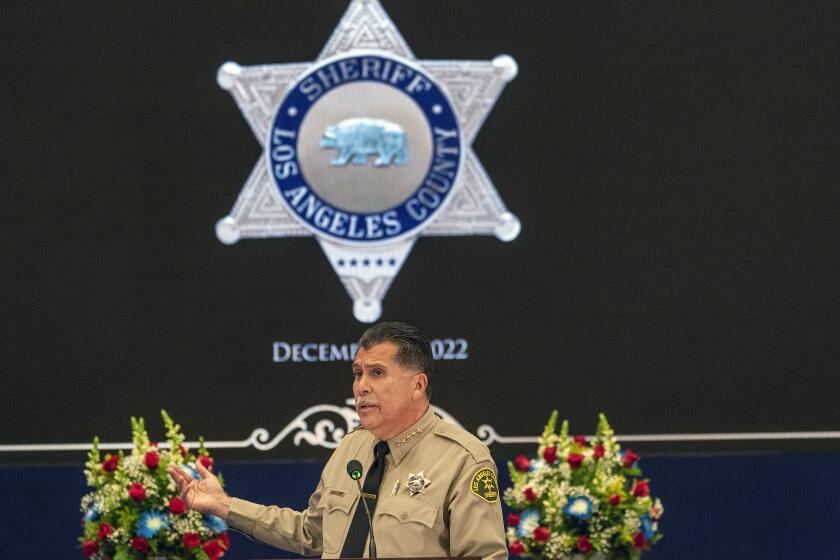Newsletter: Evil in the shadow of Disneyland, and the detective who cracked the case
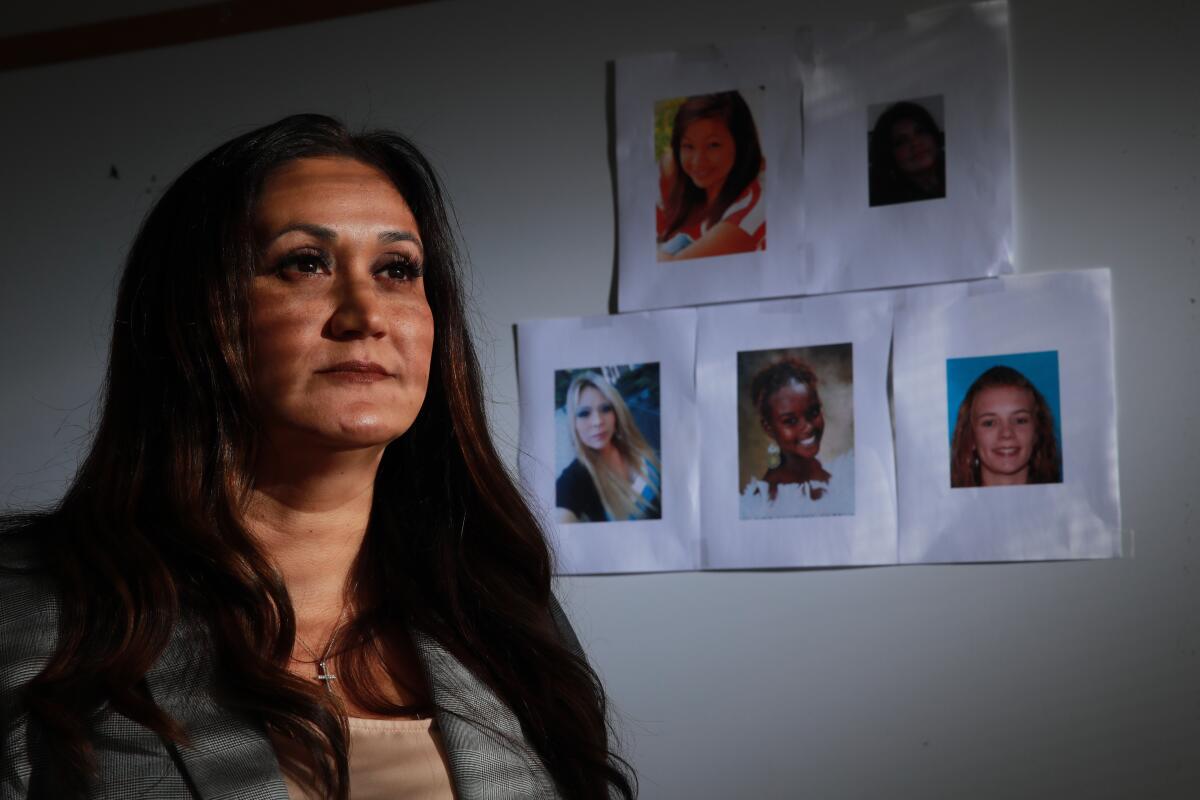
Today’s special Sunday edition of the Essential California newsletter comes from Los Angeles Times Deputy Managing Editor Shelby Grad:
What happened on the streets of Orange County in 2013 was evil. Women were being grabbed, their bodies later dumped in a local landfill. Two men were eventually arrested, labeled serial killers. There was public outrage, a media circus. And then the attention moved on.
The woman who helped solve the case got less attention. Her name is Julissa Trapp, and she is an Anaheim police detective who vowed to bring justice to the families of the victims.
Her story, not those of the serial killers, is the subject of “Detective Trapp,” a new series and podcast from Times reporter Christopher Goffard. When Goffard began looking into the case, he became much more fascinated by Trapp than by the crimes themselves.
“As I got to know her, it was hard to miss her talent as a chameleon — her ability to turn herself into who she needed to be for the job at hand,” he wrote.
“The psychology of sadism is less interesting to me than the price exacted on good people who fight its consequences. Inside the mind of the intuitive, infinitely calculating detective — one who sweats details down to the unconscious effect the color of her blouse will have on the suspect — is a more compelling journey.”
Read the series. Part 1: All the missing | Part 2: Circuits | Part 3: Partners | Part 4: The interview | Part 5: Secret graves
Listen to the podcast. Here are Episodes 1 through 3. Episodes 4 and 5 are coming soon.
[Read more: Here is The Times’ earlier coverage of the case.]
Trapp also appeared this week on “L.A. Times Today” on Spectrum One to discuss how she does her job. Here’s some of what she said.
On becoming, and being, a detective:
I’m not going to lie, it’s exciting work. Every day is definitely an adventure. But it’s also very sad work. It’s also very difficult work and an important burden that detectives carry.
You just never know what you are going to get. You arrive at a crime scene, and you don’t know where a case is going to take you. And this particular case, it is definitely a case that will stick with me forever. I’m not going to forget any of the month I spent working on this case, and I’m definitely never going to forget my girls.
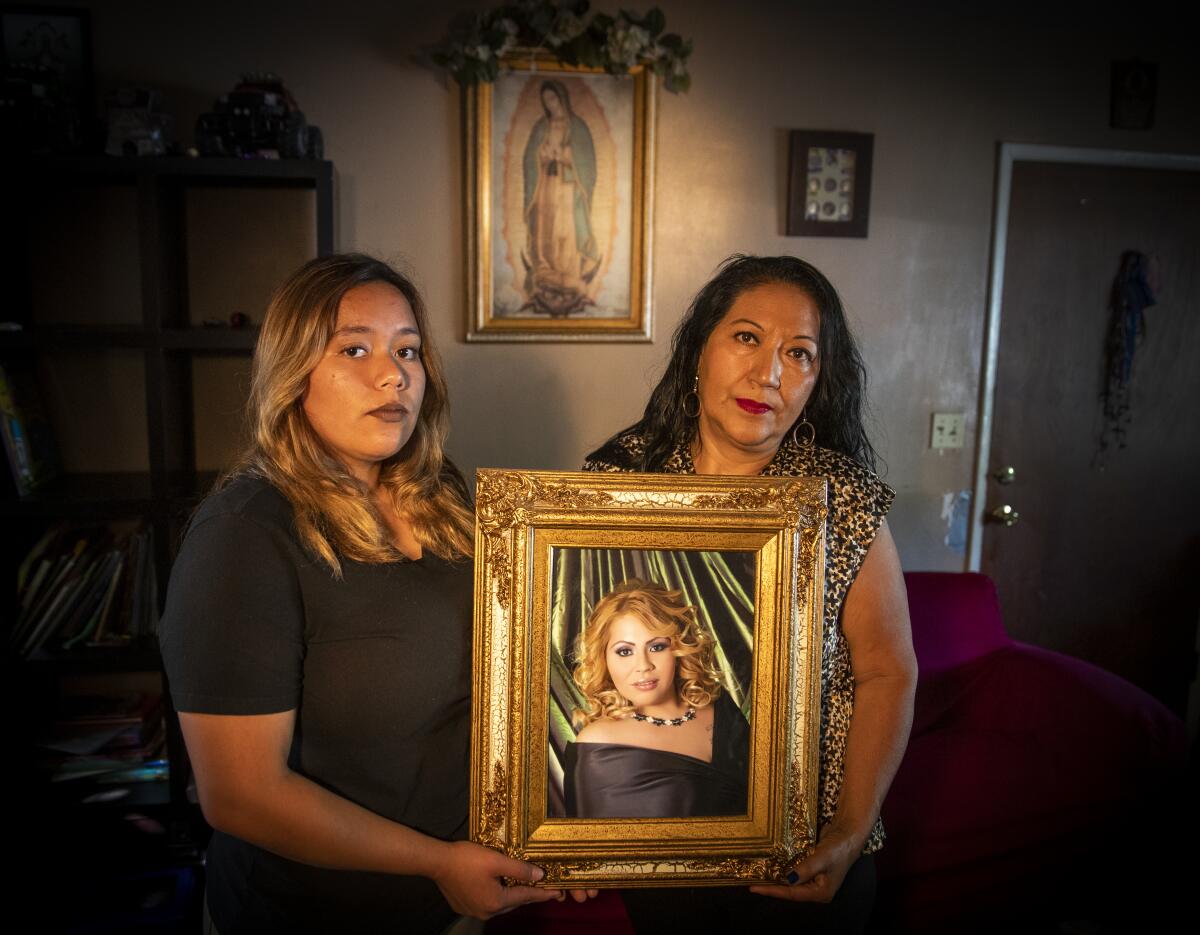
It’s something I always wanted to do. I knew it was my goal, so I went to work family crimes, which basically is a unit that handles domestic violence and physical child abuse. I did that for a little over a year, and from there I went to sex crimes — probably one of the most difficult assignments that I have ever worked. When I think of all the homicide cases I’ve worked, none have affected me as much as working sex crimes — because your victims are alive, and you see the impact that type of abuse has on them. I maintain contact with some of my victims still today, and I see how difficult it is for them to survive what they’ve gone through.
I knew I really wanted to work homicide, so I asked the lieutenant here, you know, what does it take? And he had told me you need to work the precursors: family crimes, sex crimes, gangs. Work one of those three, then apply. I took his advice a little too literally, so I went to sex crimes, and from there I decided to go and be a gang investigator. Then I finally made it to what I call the varsity team, and I have been here for nine years now.
On her search for the killer of young women:
I think maybe being a female, it hit me a little harder because of how vulnerable they were, and you know, most of them were mothers. To me, they’re just women. What they did for a living, for me, that was just a moment, a small moment in their life. It didn’t define them, and it certainly didn’t in any way make what happened to them their fault. Nobody knows their story and what led them to walk those streets. I think most of them were just trying to survive and trying to provide for their family.
I always work my cases that way. It doesn’t matter who is lying on the ground. They all get the same attention, they all get my 100%, because that’s the right thing to do. I think that is what makes me successful, is that I don’t get caught up in who the victim is, I work my cases methodically from start to finish regardless.
At the end of the day, it’s just a person. And I always tell everybody, who do you tell your deepest darkest secrets to? Your best friend. And so my goal is to walk into that room and let them know, I’m your friend. And they all have a story to tell. Every single one of them. And it’s just my job to find out how to get them to tell their story. They’re going to tell their story to someone that they trust, someone that they feel comfortable with, and someone who they feel isn’t going to judge them.
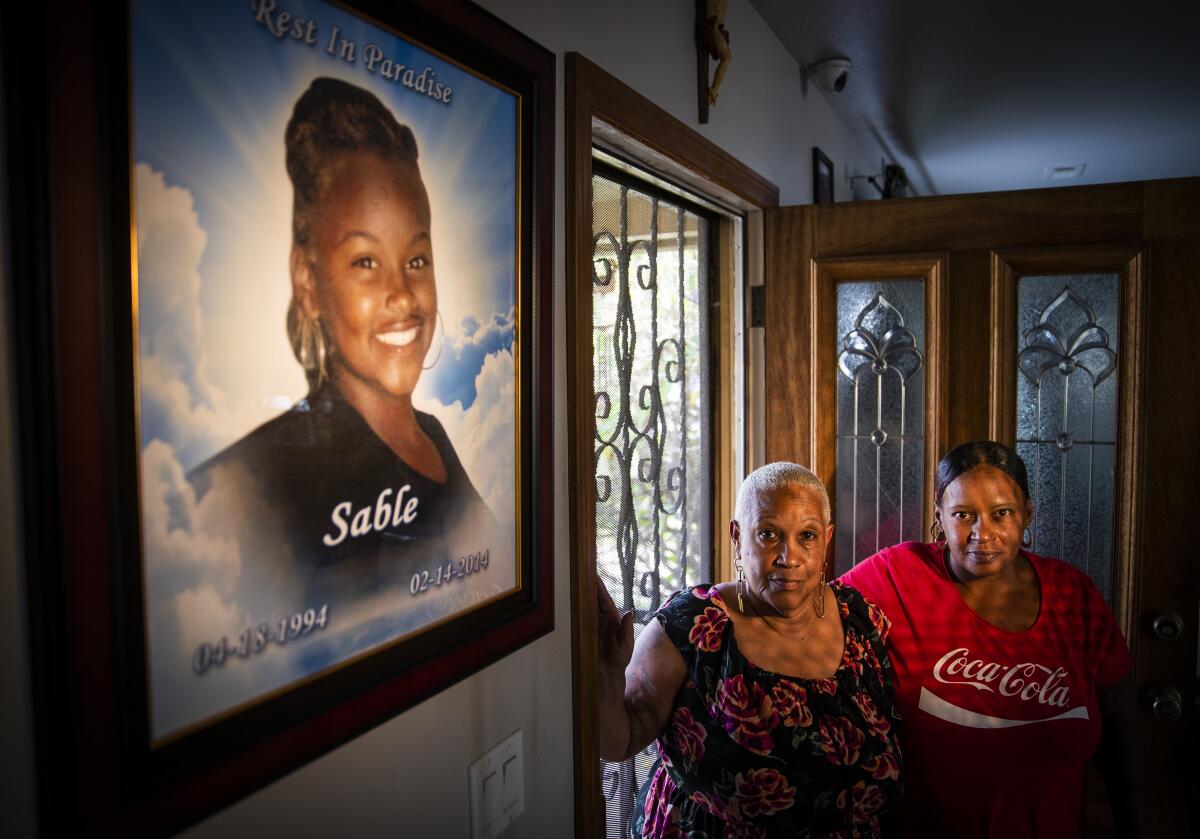
On trying to get a confession:
I kind of joke it’s kind of like — I’m Catholic — and so when you walk into confession, you learn very quickly who the priests are that are very understanding, and who will guide you into making better choices. And so I take that same approach: I’m not here to judge you. You definitely made a mistake, and I’m here to find out why you made it, and then hopefully when I walk out of that room and when you walk out of that room, you’ll make better choices. It may be in prison, but your life isn’t ending today. Like for homicide suspects — you made a horrible choice and it has tremendous consequences, but their life isn’t over. So they get to decide what kind of person they’re gonna be from that moment on.
What I’ve learned is that if you are asking that person to be completely open and honest with you, that requires almost the same from you. You are asking them to trust you. And so I have found that best way to build a rapport with someone is to be genuine with them. You just can’t fake things. When you tell them, “I know exactly what you’re going through,” you had better know exactly what they are going through. Because the minute that a suspect catches you in a lie, all that work that you have built up to get them to trust you is gone.
I had made a very, very big promise to one of those mothers, and I took that very seriously. So when I found out it involved two I was just like, OK, now I have twice as much work to do. I think at that point it was more of a sigh of relief: We know who did it — now we’ve just got to prove it.
More to Read
Start your day right
Sign up for Essential California for news, features and recommendations from the L.A. Times and beyond in your inbox six days a week.
You may occasionally receive promotional content from the Los Angeles Times.




